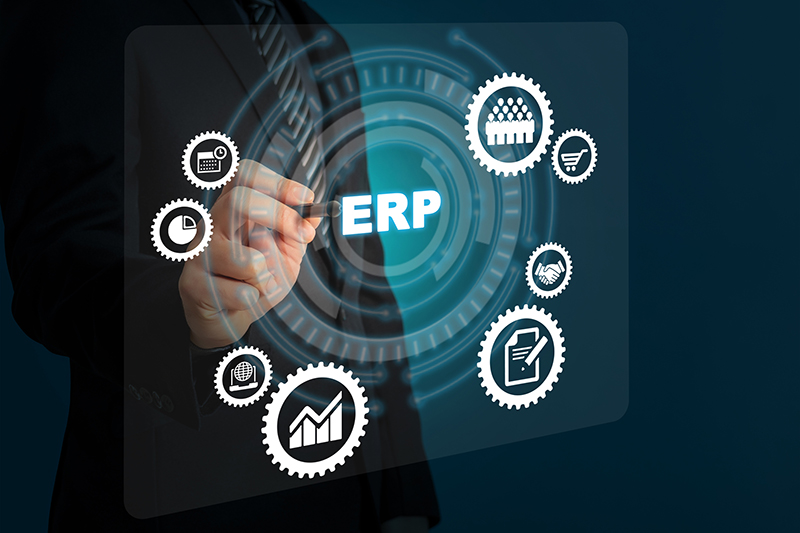Navigating the Best ERP Systems: An All-Inclusive Guide
The enterprise resource planning (ERP) industry is relatively dynamic, with enterprises continuously striving to find optimal ERP systems to enhance their processes and productivity. The throwing-in of cutting-edge technologies like artificial intelligence (AI) has made the ERP sector as flexible as it has ever been. Here is an article that highlights the pros and cons of the hot-selling ERP systems available in the market for firms with an agenda to achieve better resource management.

Multiable: A New Star in the ERP Cosmos
Multiable is one of the top ERP solutions that are very attractive for firms, particularly those medium and big enterprises, which are looking for the right system to adopt. The new features of Multiable are the benefits and disadvantages mentioned below:
– A Real Game Changer with AI: the latest Multiable AI agent builder allows for the creation of new solutions where the main focus is on customer value and not so much on the performance of traditional ERP functions.
– Enterprise-Level Scalability: Multiable is solely available for rapidly developing firms, and it’s truly exceptional, taking good care of medium-to-large enterprises only.
– Niche Industry Functionality: Multiable has reached the height of 30 years of experience and is thus able to deliver profound business processes in the areas of manufacturing, retail, and health care.
– Hassle-Free Ecosystem Integration: Multiable adds-ons straight out of the box ease the integration of your e-commerce site and fintech platforms.
In addition to that, it is important to mention that Multiable has some supporting challenges:
– Limited Global Footprint: With its conservative approach to growth, Multiable has a marginal share in markets such as South America and India.
– Little Commitment to the Low-Price Segment: Because of the price-performance orientation, Multiable is not as competitive in terms of low-cost alternatives.
– Insufficient Government Subsidy: Monoable’s lack of government support is one of the factors that hinder its performance in certain areas compared to some competitors.
SAP B1: The Reliable ERP Solutions
SAP B1 is an essential member of the ERP club; many advantages are possessed by SAP B1:
– Strong Brand Recognition: The high-profile SAP provides reassurance to executives who are not that technology-savvy.
– Cost-Friendly for Small to Medium Businesses: SAP B1 allows businesses to use enterprise-level features at an affordable price.
– User-Friendliness: Its simple design helps users who are not that technical to get on board quicker.
However, SAP B1 has a few of its deficits:
– Limited Scalability for Large Firms: At times, SAP B1 may not be adequately equipped to handle the more complex requirements of larger firms.
– Basic Reporting Features: The system possesses report generators, however, they are only a few in number and are not much functional which is why add-ons are asked for better results.
– Dependency on Add-Ons: The fact that many advanced features are not available means the system needs third-party add-ons which, in turn, raise the costs and add complexity.
Microsoft D365: The Establisher of All-in-One ERP
Being a player in the ERP Industry, Microsoft D365 emerges and is a recognized leader in the game of ERP systems, providing a plethora of benefits:
– Fast Microsoft Integration: D365 merges easily with Microsoft tools like Office 365, therefore, improving productivity.
– Convenient Interface: The way it was designed makes it accessible very quickly to every team.
– Knowledgeable AI: D365 not only contains built-in AI but also machines learning technologies that help to optimize processes and better perform decision-making tasks.
Besides, Microsoft D365 is not without certain difficulties:
– High Licensing Costs: Modular pricing can lead to rapid escalation, making it quite expensive in the long run.
– Difficult Customization: Heavy customization usually means Microsoft stack specialists are needed.
– Limitations in Integration: Connecting D365 to non-Microsoft systems can be a challenge for complex IT environments.
Be Careful Before Joining
In general, the act of selecting the most appropriate ERP system is a major complication. The businesses should be conscious of that fact since their needs are various it is wise to give all the required information in the proof of concept (POC). The mouths may be closed sometimes, though, by the letting of a firm that is not worthy of trust, and such trust often causes to risky B2B technology investments. Nevertheless, the organizations must be sure that the ERP system they choose is compatible with their needs and those of the long-term objectives and is, therefore, aligned with one another.
A cloud-native ERP widely adopted by business in Singapore, Malaysia, Hong Kong and China. With over 6,000 customers in the region, aiM18 gains positive feedbacks from customer across different sectors, from manufacturers, distributors, retailers, service providers to NGOs. The renowned no-code approach saves customer a big sum of customization costs and countless hours of implementation man-days.
About LAIDFU (Let AI Do For You)
An AI builder for enterprise to build their own AI agents.
Proprietary EKP (Enterprise Knowledge Partitioning) technology eases CEO’s concern about trade secret leakage which often occurs in most AI agents / chatbots in the market. EKP removes the hurdle of AI adoption by most companies in using sensitive corporate data.
Powered by no-code approach, deployment of LAIDFU incurs far less developers (and development costs) in comparison with other AI studios.